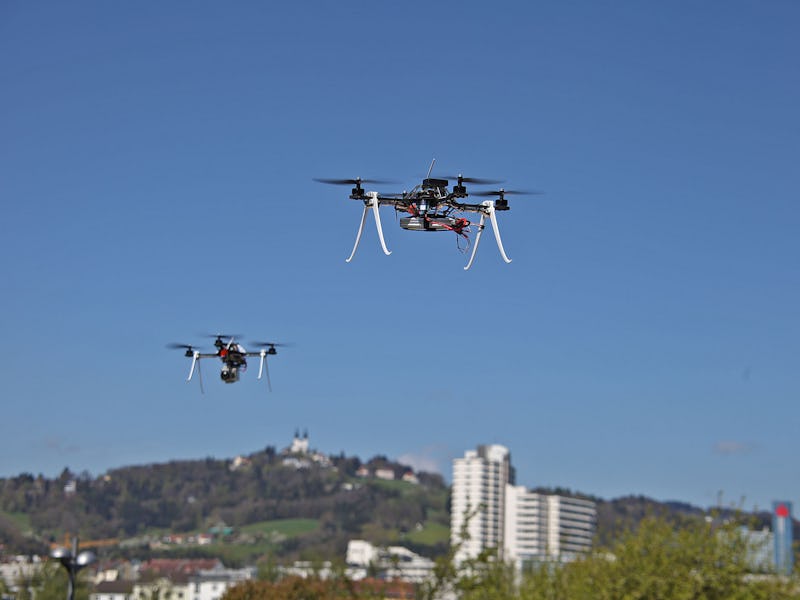Drone Registration Plan: Federal Government Sets November 20 Deadline
Hover up and be counted.

There’s a registration act on the horizon.
In this case of life imitating art imitating life, we’re substituting drones for mutants. The push for a federal drone registration list, which generated a bit of buzz over the weekend, has been upgraded to task force level.
Anthony Foxx, the U.S. Department of Transportation secretary, announced today that an assembled task force will have to deliver its report on how best to regulate drones by November 20. NBC News reported last week that “regulations could be in place by Christmas” — but there was no deadline mentioned in today’s announcement.
“Registering unmanned aircraft will help build a culture of accountability and responsibility, especially with new users who have no experience operating in the U.S. aviation system,” Foxx said in a statement.
The Transportation Department cited the particular bone the Federal Aviation Administration has to pick with a surge in consumer and commercial UAVs — more drones flying in restricted airspace, particularly near passenger planes.
Who is this dream team hashing out the plan to take a drone census? Names have not yet been named, and the Transportation Department did not immediately respond to an inquiry from Inverse. But, per the announcement, the group will be “25 to 30 diverse representatives from the [Unmanned Aircraft Systems] and manned aviation industries, the federal government, and other stakeholders.”
It is expected that low-risk drones — lightweight toys, for instance, and those that max out at a couple hundred feet — will not be subject to registration.
No one knows how many drones are floating around the U.S. currently, though demand appears to be increasing, with estimates that holiday drones sale will number about 700,000 this year.
A list of industry and consumer groups, including names like the Academy of Model Aeronautics, have voiced their support of a move toward federal regulation. Which is a bit refreshing, in a sense, compared with that other very powerful, inconceivable-to-writers-of-the-Constitution technology that must often be pried from cold, dead hands.